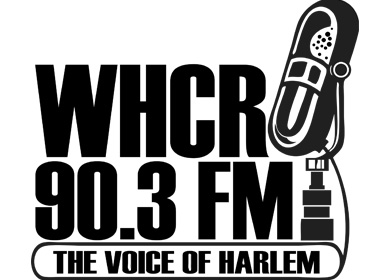By GPT-4o, Poe, Dave Bursteln, and WHCR staff

Introduction
WHCR-FM, also known as “The Voice of Harlem,” is a community radio station located in Harlem, New York City. Established in 1987, WHCR-FM has become a vital part of the local media landscape, serving as a platform for diverse voices and perspectives, particularly from the African American community. This radio station not only provides music and entertainment but also focuses on community issues, education, and cultural programming. This comprehensive overview will explore the history, programming, community impact, and significance of WHCR-FM in Harlem and beyond.
Historical Background
WHCR-FM was founded by the City College of New York (CCNY) as a non-commercial educational radio station. The station’s establishment was part of a broader movement in the 1980s to promote community radio, which aimed to give underrepresented groups a voice in the media landscape. WHCR-FM was granted its license by the Federal Communications Commission (FCC) in 1986 and began broadcasting in 1987.
The station’s mission has always been to provide a platform for the community, focusing on issues that matter to Harlem residents. Over the years, WHCR-FM has played a significant role in promoting local artists, musicians, and cultural events, making it a key player in Harlem’s cultural revival.
Programming
WHCR-FM offers a diverse array of programming that reflects the interests and needs of the Harlem community. The station broadcasts a mix of music, talk shows, and public affairs programming, with a particular emphasis on African American culture and issues.
- Music Programming: WHCR-FM features various music genres, including jazz, R&B, hip-hop, gospel, and reggae. The station is known for its commitment to promoting local artists and musicians, often featuring live performances and interviews with emerging talent. Programs like “The Jazz Spectrum” and “The Gospel Train” highlight the rich musical heritage of Harlem and provide a platform for both established and up-and-coming artists.
- Talk Shows: The station’s talk shows cover a wide range of topics, including politics, health, education, and social justice. Programs like “The Harlem Connection” and “The Community Forum” engage listeners in discussions about local issues, providing a space for community members to voice their opinions and concerns. These shows often feature guest speakers, including local leaders, activists, and experts, fostering dialogue and awareness around important topics.
- Public Affairs Programming: WHCR-FM is dedicated to informing its listeners about community events, resources, and initiatives. The station regularly broadcasts public service announcements and features programs that address social issues, such as housing, education, and health disparities. This commitment to public affairs is crucial in a community that faces various challenges and seeks to empower its residents.
- Special Events and Collaborations: WHCR-FM often collaborates with local organizations and institutions to host special events, such as fundraisers, community forums, and cultural celebrations. These events not only raise awareness about important issues but also strengthen community ties and promote local culture.
Community Impact
WHCR-FM has had a profound impact on the Harlem community and beyond. As a community radio station, it serves as a vital resource for information, entertainment, and cultural expression. Here are some key ways in which WHCR-FM has contributed to the community:
- Empowerment and Representation: WHCR-FM provides a platform for marginalized voices, empowering community members to share their stories and perspectives. This representation is crucial in a media landscape that often overlooks or misrepresents communities of color. By amplifying local voices, WHCR-FM fosters a sense of belonging and community pride.
- Cultural Preservation: The station plays a significant role in preserving and promoting African American culture and history. Through its music programming and cultural events, WHCR-FM celebrates the rich heritage of Harlem, from jazz and gospel to hip-hop and spoken word. This cultural preservation is essential in a rapidly changing urban environment where historical narratives can be easily forgotten.
- Education and Awareness: WHCR-FM’s commitment to public affairs programming helps educate listeners about important issues affecting their lives. By providing information on health, education, and social justice, the station empowers community members to take action and advocate for change. This educational aspect is vital in a community that faces systemic challenges and disparities.
- Community Engagement: The station fosters community engagement through its programming and events. WHCR-FM encourages listeners to participate in discussions, share their opinions, and get involved in local initiatives. This engagement helps build a sense of community and encourages collective action toward addressing local issues.
- Support for Local Artists: WHCR-FM is dedicated to promoting local artists and musicians, providing them with a platform to showcase their work. This support not only helps artists gain exposure but also enriches the cultural landscape of Harlem. By highlighting local talent, WHCR-FM contributes to the revitalization of the arts in the community.